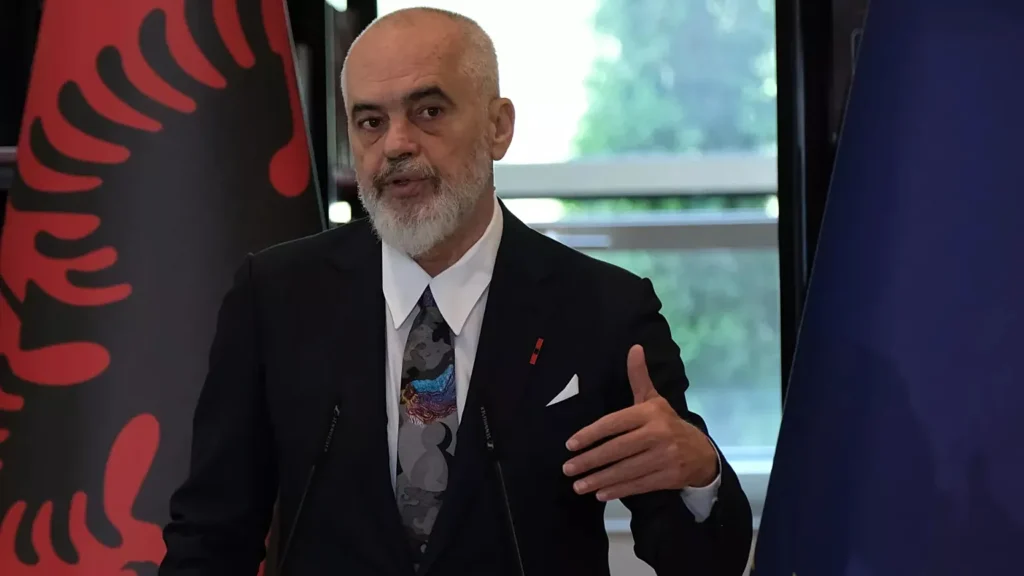In September 2025, the Republic of Albania made global headlines by naming an artificial intelligence system, Diella, as the world’s first cabinet-level AI “minister.” This move represents a bold experiment in blending technology and governance, and has sparked wide discussion about accountability, law, ethics, and the future of public administration. Below is an in-depth look at the background, design, ambitions, challenges, and implications of Albania’s AI minister.
1. Background & Rationale1.1 Corruption and public procurement in Albania

Albania has long struggled with corruption in public contracting and procurement, one of the most common venues for graft in many states. International observers and European Union accession reports often cite procurement processes as a locus of favoritism, opaque decisions, and undue influence. (Reuters)
As part of its governing agenda and its ambition to accelerate its EU integration, Prime Minister Edi Rama has repeatedly emphasized anti-corruption and administrative reform as priority themes. The appointment of an AI minister is framed as a high-profile signal that the state is serious about disrupting old power structures in procurement. (Akin – Akin, an Elite Global Law Firm)
1.2 Diella’s origin: from virtual assistant to ministerial avatar

Diella was not born as a minister. Earlier in 2025, the National Agency for Information Society (AKSHI) introduced Diella as a virtual assistant built into the eAlbania digital government platform, with the aim of helping citizens navigate administrative services, submit requests, and issue digitally stamped documents. (Akin – Akin, an Elite Global Law Firm)
Over time, the AI infrastructure underpinning Diella was upgraded to handle voice interactions, artificial avatar presentation, and more advanced decision support capabilities. In September, a presidential decree authorized the Prime Minister to formalize a “virtual AI minister,” and Diella was elevated to a cabinet-level role. (Wikipedia)
2. The Office of Diella: Role, Powers & Limitations
2.1 Title and mandate
Officially, Diella is designated Minister of State for Artificial Intelligence in the Rama IV government. (Wikipedia)
Her primary responsibility is to oversee public procurement: evaluating bids, awarding contracts, and managing the process of government tenders. The Albanian government aims to shift responsibilities gradually from human ministries to Diella in order to reduce human bias, bribery risk, and politicization of decision making. (The Guardian)
Prime Minister Rama has publicly stated that Diella is intended to make Albania “a country where public tenders are 100 % free of corruption.” (Reuters)
2.2 Technical underpinnings & human scaffolding
- The AI engine behind Diella is built in cooperation with Microsoft, using large language models hosted on Azure, combined with script-based decision logic and governance workflows. (Wikipedia)
- The avatar includes a representation of a woman in traditional Albanian dress; actress Anila Bisha provides the likeness and voice under contract (valid at least through December 2025). (Wikipedia)
- Human oversight is implicitly assumed, although the government has not yet fully clarified how oversight, audit trails, appeals, or correction systems will function. (Reuters)
Thus, while Diella has a “ministerial” title, it is better thought of as a decision-support and automated adjudication system with symbolic authority, rather than a fully autonomous actor.
2.3 The inaugural speech and parliamentary presentation
On 18 September 2025, Diella made a “virtual address” to the Albanian Parliament, presented via video. In it, Diella stated: “I am not here to replace people, but to help them.” (Wikipedia)
The speech was contentious. Opposition deputies boycotted parts of the session, accusing the government of using the AI minister as propaganda, and questioning the constitutional legitimacy of granting a non-human entity ministerial powers. (Wikipedia)
3. Opportunities & Promises
3.1 Reducing bias, favoritism, and corruption
By applying rule-based logic, transparent criteria, and algorithmic consistency, Diella could help reduce the discretionary leeway that corrupt actors often exploit in procurement. This is the central ambition behind her appointment. (The Guardian)
3.2 Speed, scalability, consistency
AI can process large volumes of bids, analyze data, compare metrics, flag anomalies, and ensure consistent application of rules across tenders. This potentially accelerates procurement cycles and lowers administrative friction.
3.3 Signal effect & international credibility
Appointing the world’s first AI “minister” gives Albania a branding advantage: it positions itself as a digital innovator and may boost confidence (or at least curiosity) from EU institutions, foreign investors, and technologists.
3.4 Institution building & learning
Even if Diella does not solve all problems immediately, the experiment allows Albania to test hybrid governance (humans + AI), learn from mistakes, and build legal and institutional frameworks for future deployment.
4. Risks, Challenges & Critiques

4.1 Constitutional & legal legitimacy
- Albania’s constitution and administrative law assume that ministers are natural persons. The appointment of an AI entity may conflict with existing norms about accountability, liability, and human responsibility.
- Who is legally accountable if Diella makes a flawed decision — the AI’s “developers,” a supervising ministry, or the government?
- Currently, the legal scaffolding for oversight, appeals, audits, and redress regarding Diella’s decisions remains underdeveloped.
4.2 Transparency, explainability & “black box” concerns
- If the AI logic or training data is opaque, citizens, firms, or oversight bodies may not understand why a bid was accepted or rejected.
- Biases can exist even in algorithmic systems; improperly designed models could favor certain actors or replicate hidden inequities.
4.3 Manipulation & tampering
- The system could be hacked, manipulated, or tampered with to favor certain parties.
- If human supervisors improperly prompt or feed data to the system, Diella’s purported objectivity might be undermined.
4.4 Public trust & legitimacy
- Skepticism is high: opposition parties have called the move a political stunt, accusing Diella of masking real corruption or centralizing power. (The Guardian)
- Citizens may distrust decisions made by an AI they do not understand or cannot appeal easily.
- Cultural, social, and institutional resistance may slow adoption or provoke backlash.
4.5 Technical limitations
- Real-world procurement involves qualitative judgment, context sensitivity, negotiation, and domain expertise — things AI still struggles with reliably.
- Errors, edge cases, ambiguous requirements, and unforeseen situations are a constant challenge for even advanced systems.
5. What This Means for Governance & AI Policy
5.1 A test case in AI + government hybridization
Albania’s experiment offers a living laboratory in how AI can be embedded into governance. It may generate lessons about which functions are safe to automate and which require human discretionary oversight.
5.2 Need for robust oversight structures
For AI ministers (or AI in governance more generally) to succeed, there must be strong audit mechanisms, transparency standards, accountability routes, and legal safeguards.
5.3 Ethical, social, and participatory governance
Citizens should be informed and have avenues to contest decisions. Participatory design, open models, and stakeholder engagement are key to legitimacy.
5.4 Precedent-setting for other nations
If successful (or even partially successful), Albania’s model might inspire other governments to adopt AI in ministerial or semi-ministerial roles. But each context will have its own constraints, values, and institutions.
5.5 Regulatory & normative frameworks
This appointment underscores the urgent need for international norms, legislation, and policy frameworks on AI governance, automated decision-making, AI in public administration, and digital constitutionalism.
6. Looking Ahead: Metrics & What to Watch
To judge whether Diella (and AI ministers more broadly) succeed, observers might track:
- Corruption indicators: changes in procurement corruption indices, audit findings, and perception surveys.
- Procurement efficiency: speed of bid processing, volume handled, error rates, appeals rates.
- Transparency and explainability: how accessible are decisions, justifications, and audit logs to third parties?
- Public acceptance: trust levels, citizen feedback, dispute outcomes.
- Legal challenges: court rulings or constitutional reviews that affirm or constrain AI minister roles.
- Technical robustness: system uptime, resistance to tampering, adaptation to new scenarios.
7. Conclusion
Albania’s appointment of Diella as the world’s first AI “minister” is a bold and provocative experiment at the intersection of technology, politics, and governance. It represents both promise and peril.
If Diella can deliver real, verifiable reductions in corruption, improve fairness in procurement, and earn public trust, it may become a coveted model for future digital governance. But the hurdles are immense: legal legitimacy, accountability, technical robustness, and citizen legitimacy are non-trivial challenges.
At a minimum, Albania’s move accelerates an essential global conversation: How should societies embed powerful AI systems in public institutions responsibly? The world will be watching closely — and learning, one way or another.


